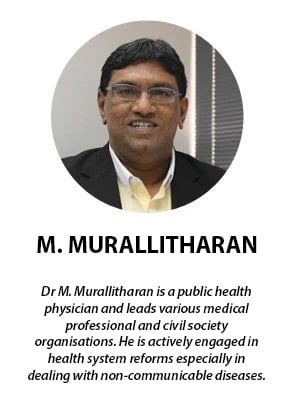
ChatGPT, a language-based Artificial Intelligence (AI), recently passed the United States Medical Licencing Exam (USMLE), a set of three standardised medical licensing exams required for individuals to practise medicine in the US.
What was interesting was that ChatGPT did this without any specialised input from human trainers; displaying reasoning and the ability to reach clinical decisions.
In another study, ChatGPT was pitted against medical professionals in terms of responses to different medical questions posed in a public online forum including inquiries about diagnoses.
Answers from ChatGPT and physicians for the 200-odd questions were compared to one another, with the assessment being conducted by a panel of healthcare professionals.
More than 25% of the responses by physicians were considered to be less than acceptable in terms of quality compared to less than 3% of those from ChatGPT.
On the other side of the spectrum, 45% of the responses from ChatGPT were considered to be empathetic while only 5% of the responses by physicians were judged to be so.
Basically, these two studies point to evidence on how ChatGPT was not only able to be clinically competent, but it was also able to communicate in an empathetic manner.
While some readers may already be getting goosebumps and thinking “Skynet” in their heads (referring to the AI named Skynet which had taken over the world in the Terminator movie franchise), within the medical landscape this news adds to the solidification of something already happening within the health landscape: the democratisation of health.
The internet along with the stellar rise of attendant technologies such as smartphones, e-media and now AI, have slowly dragged open the hitherto closed world of health and medicine. With these tools, patients have become more empowered to be active players in their own care.
This is what the term democratisation of health means: the ability of the patient to make more choices on their own health due to the wide availability of health knowledge and the convenience of health solutions including in telehealth and online shopping for health and medicine products.
Through democratisation of health, a patient will now be able to select the medium and type of health information that they want to receive, select the type of care that they want from the myriad of providers and different services available and, at merely a touch of their fingertips, make these choices about their own care and health.
With patients better able to personalise their own care by providing their own preferences and context to the health that they receive, guided by technology, surely we would be doing better at providing health, right?
Nope. Traditionally, the healthcare space is highly regulated, as we want safety and quality in the healthcare that we receive.
This includes overseeing and ensuring regulated providers, recognised and registered health and medical products; and even licensing and quality checks over the places in which care is provided such as hospitals and clinics.
With the world wide web and social media however, anyone can now claim to be a health professional and health education expert- and that’s what many are doing.
Quacks abound online, each peddling a new ‘cure’ for cancer that’s easily foisted on the unsuspecting public through targeted marketing strategies guided by algorithms fuelled by AI.
Unregulated products and services can be obtained from a host of different places both within and outside the country due to countless mechanisms; and there are even ‘so-called’ professionals (individuals claiming to be trained healthcare professionals such as psychologists and doctors) peddling online services via paid consultations.
Again, it’s been easy to shrug our shoulders and say: “Haiya, there is nothing much that we can do. People are just too gullible and if they are duped, it’s really their fault.”
This is where the greatest challenge lies. The healthcare landscape as a whole has been slow and sluggish to respond to the call and the opportunity to democratise healthcare in a manner that enables health to continue to be provided in a safe and effective manner.
Take health education and awareness for example. Only after a few years have we now started seeing the rise of the health influencer; medical professionals who are providing valid, accurate health education to the public.
Although their influence and numbers are rising, they are still a trickle in the ocean of influencers – many of whom have little to do with health, but promote and sell health goods through monetisation strategies of their ‘influencer’ status.
Imagine how things will be with ChatGPT that can now be configured to provide pseudo-medical advice and subsequently drive you to buy an unnecessary health product or an unneeded medical service.
I am sure that even as I am writing this, this is already happening. Worse, ChatGPT can be so convincing that as a patient, you really might think that you are dealing with a genuine, human doctor.
The answer is not to discontinue ChatGPT, nor is it to sit quietly and bemoan the sorry state of rapid technologies. From the dawn of time, mankind has always been innovating, and with these innovations come a transformative mindset amongst society as a whole.
With patients embracing the choices they are now being provided through healthcare innovations, it is important for healthcare professionals to embrace and adapt these technologies into the way they are delivering daily care as well.
To not do so would be to doom the healthcare landscape into a downward spiral of insignificance that would be detrimental in the long run. - FMT
The views expressed are those of the writer and do not necessarily reflect those of MMKtT.



No comments:
Post a Comment
Note: Only a member of this blog may post a comment.